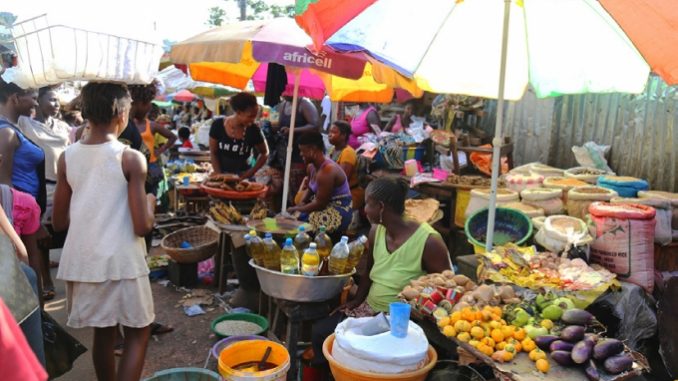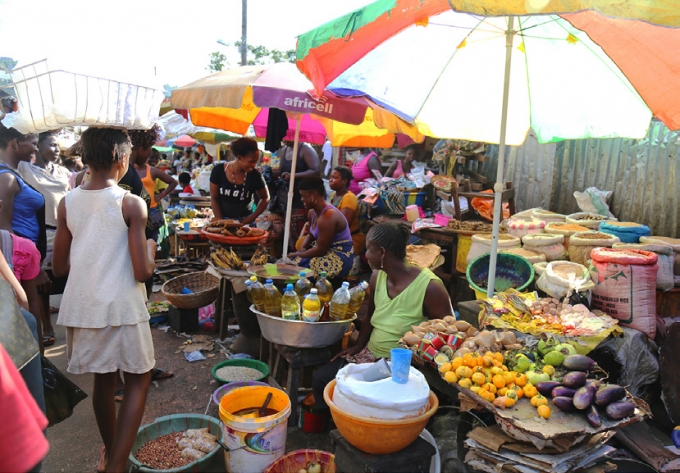
By Mohamed Massaquoi
Since the Sierra Leone People’s Party (SLPP) returned to power a lot has not gone according to plan. Granted the government has touted its credentials as a pioneer of fiscal discipline and consolidation. But the impact is not being felt by the ordinary man and woman in the streets. Bread and butter issues remain very much on the agenda like the SLPP itself never tired of reminding the past APC government. Now that the SLPP is in charge, bread and butter issues are still very much top on the agenda with basic commodities out of the reach of over 70 percent of citizens of this country.
Moreover, the euphoria that accompanied President Julius Maada Bio into office has dissipated rapidly. Why? Because life has become more unbearable for not just the ordinary man but even those who spearheaded the return of SLPP into office – the grassroots. There is grumbling of the “de grun dry” daily at Wallace Johnson Street (the party’s Headquarters).
Recently, the First Lady of the Republic Madam Fatima Bio admitted on local radio 98.1 that “de grun dry” for even herself. We don’t know whether she was provoking the ordinary man and woman because “de grun ihn dry wan” nar by level.
There has been an increase in tariffs since the SLPP came to power and things have gotten worse during this Holy Month of Ramadan which has inadvertently brought untold suffering on the Muslim Ummah across the country.
“Any serious government worth it’s salt will take concrete steps to ensure that prices of basic food stuffs and essential commodities do not spiral out of control during this Month to showcase their love and care for the Muslim community and Sierra Leoneans generally,” a trader, Brima Turay at Sani Abacha Street opined. He noted that they (traders) haven’t seen any move by this government through either its first minister of trade and industry or even the new minister to engage importers, traders and consumers on the way forward regarding the skyrocketing prices of essentials in the market.
Based on a spontaneous market survey yesterday, the goods in high demand during the month of fasting are rice, flour, sugar, oil, onions, tomatoes, vegetable, fish and meat. Prices of these products normally skyrocket during the month of Ramadan. “It’s worst this year because the government doesn’t seem to be paying any attention to the welfare of Muslims because it’s not a priority,” Fatu Sawanneh, a petty trader at ECOWAS street told this writer. She called on the SLPP government to monitor the wholesale market and the importation of goods into the country especially during Ramadan. “Not that government is solely responsible for the uncontrollable hike in the prices of basic goods and services, but it should keep an eye on notorious traders who are always anxious to take advantage of this season,” she admitted.
Madam Sawanneh went on to advise her fellow traders to sell decently and avoid making “head-to-head” profit at the disadvantage of the poor masses who end up at the receiving end of this madness and selfishness.
The past government made frantic efforts by way of assistance to traders to keep prices in check and supply stable. But this isn’t the case today as the prices of everything from food stuffs to building materials have blown through the roof. “We call on government to look into our plight soonest to ensure we breath a sigh of relief during the remaining weeks of fasting,” a member of the traders union said.
Isatu Kamara, a mother of four, selling her wares at Sackville Street claimed that the SLPP government has decided to punish the Muslim Community who are in the majority in the North and West of the country as they overwhelmingly voted for the APC. She’s very suspicious of this government given the fact that it has done nothing to ameliorate the suffering of the poor during this Month of Ramadan.
Another problem that is making life very difficult for the common man and woman, particularly in Bo and Kenema is running a business on generator at 12 gallons a day is not sustainable at all especially when it’s done for long hours. “There’s no electricity in Bo even though we did everything possible to ensure the SLPP came back to power,” Lucinda Makavoray, a shop owner along Fenton Road said.
As we go to press, all efforts to contact the newly appointed Minister of Trade and Industry for the government’s side of this developing situation proved futile.




